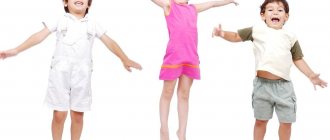Don’t know how to raise and raise a person with psychological thorns?
Find out in this article
Hello,
Dear readers!
I continue my story about how to raise a child.
In this article I will describe very unpleasant and ineffective, but at the same time the most common parenting styles.
I provide all examples from my family counseling practice with the kind permission of my clients.
This is a style dominated by excessive concern for the child.
And the exorbitant level of his protection from any more or less unfavorable circumstances.
Parents are very worried about the child’s health and give him all their attention and energy.
At the same time, parents avoid punishment.
Many people think that this educational style is based on a very strong love for the child.
Yes it is. But more often than not, it’s not just intense love—it’s excessive or symbiotic love.
This type of love involves the psychological fusion of parents and their child. This is otherwise called codependency.
Example:
I have two people at my reception: a sixty-year-old woman and her son, a thirty-five-year-old “young man”.
He has problems in relationships with colleagues. His mother brought him. He sits and is silent. She speaks for him. He says it straight out: “WE often quarrel with our employees!”
It is clearly visible that the mother practically identifies herself with her child - she and he are a single “WE”.
It is obvious that it is high time for her son to become independent and break away from his mother.
But he is her infantile victim, and she is a tyrant woman. Both need to grow up psychologically, but they really don’t want to leave their comfort zone.
Such variants of excessive guardianship often form in single-parent families or in families where there is a very strong alienation between spouses.
In this case, one of the parents, most often the mother, transfers her unrealized feelings with her spouse to the child.
Psychologically, she is also forced to merge with the child by a feeling of loneliness and abandonment.
Another reason for symbiotic overprotection may be the ambivalent (contradictory) feelings of parents towards their child.
For example, when the child was unwanted. On the one hand, you need to love him, but on the other hand, he is not needed, and therefore causes negative reactions.
See below for an example of this.
There are different types of overprotectiveness. Let's look at them.
♦♦♦
Authoritarian overprotection
♦♦♦
Or tough and demanding protection.
Parents' mottos:
- “I protect with imperious care and omnipotent control!”
- “Parents know better what and how to do!”
- “You are small and don’t understand anything!”
- “Listen to me and everything will be fine!”
This is the most common parenting style in our country. It is often used by tyrant parents.
Passed on from generation to generation. Stable and stupidly considered the most effective and reliable.
In this case, there is a lot of attention to the child and more than enough control. But the problem is that both attention and control are authoritarian.
They require complete submission and obedience. Submission is the only thing a child can do.
His actions, deeds, words and feelings are tightly controlled.
Up to the choice of profession, university, spouse and life path. Most often one of the parents
How does this parenting style affect the child’s fate, and how he can grow up,
you will read in the article:
About the authoritarian parenting style
♦♦♦
Pandering Overprotection
♦♦♦
In this case, the child is the center of family life. They love him, fulfill all his whims, admire him. They give very expensive gifts.
Unlike dominant or authoritarian care, where there are too many punishments and few rewards, with indulgent care there are too many rewards and almost no punishments.
At the same time, rewards always clearly do not correspond to achievements. And the child’s achievements themselves are greatly exaggerated.
Parents and other relatives protect the child from problems and difficulties and do everything for him. He is on the family honor podium.
From an early age, the child learns the script: “I am the best!” - This is an egocentric scenario. It seems to him that the world revolves around him.
This scenario is accompanied by another:
“Everyone except me is bad and unworthy!” - this is the scenario of an egoist.
You can read more about this in the article about your life scenario.
How will the child grow up?
- infantilism, inability to solve one's problems
- inflated self-esteem, egocentrism and selfishness
- excessive demands on others, conflict
- painful need for attention from others
- a complex of fame and achievements, exorbitant claims in the absence of determination, perseverance and willpower
- constant neuroticism against the background of a critical discrepancy between the level of aspirations and the level of achievements
- alcohol and drug abuse and other forms of addiction
♦♦♦
Third Party
or non-parental overprotection
♦♦♦
This overprotective style is most often used by grandparents. Can be both dominant and indulgent care.
Most often you can see the second option.
At the same time, the “grandparents’” way of upbringing can be very different from the parents’ and even opposed to it.
Thus, parents can strongly control the child and limit him very much.
And grandparents pamper and allow everything.
The conflict of parenting styles often results in real intra-family conflicts. And when the child grows up, it transforms into conflicts within his personality.
Often, growing up, children bear a strong resentment against their parents for their authoritarianism and harshness. After all, they perceived them against the backdrop of the “kind” attitude of their grandparents.
However, it also happens that the “grandmother’s” style of parenting compensates for the shortcomings of the parental style and balances it.
But this is a rare occurrence.
How will the child grow up?
- diffidence
- suggestibility
- increased anxiety
- impulsiveness and aggressiveness
- blurred values, life assessments and guidelines
- alcohol and drug abuse and other forms of addiction
Now let's look at another parenting style. In essence, it is the opposite of the previous one. But it is similar to it in that it also traumatizes the child.
Inflicts severe psychological wounds on him. This …
Concept
Hypocare is a type of family upbringing characterized by the fact that children are deprived of the care and attention they need.
Parents may purposefully choose this method of upbringing, considering it the most acceptable, or not fully realize the error of their behavior.
Lack of attention in childhood never goes away without leaving a trace. In the future, such children often experience deviant behavior, problems in relationships with others, personality disorders, difficulties in building relationships, etc.
Hypoprotection can manifest itself not just in lack of attention or ignoring, but also in the appearance of disgust or hatred.
“Symptoms” of hypoprotection in a child
- One of the main signs is loneliness. A child who feels useless behaves distantly.
- Demonstrative behavior is characteristic of children who have a great need for attention and love. The child thus wants to get at least some kind of reaction from his parents, even if it’s negative.
- Entering the virtual world. The child is running away from real life, in which mom and dad don’t notice him.
- "Bad Company. The need for attention is filled by the company where the child is received. It is difficult for children to leave such communities, because there is no alternative.
Main reasons
Parents behave this way for various reasons:
- Immaturity . Children often appear in young couples who did not plan for pregnancy. As a result, a family is not created naturally when both parties desire to marry, but solely out of necessity. The unpreparedness of new parents to raise a child leads to their desire to relieve themselves of responsibility for his life as much as possible and to protect themselves from the problems that arise. Similar behavior can also be demonstrated by couples who consciously planned a pregnancy, but then faced harsh reality. At a young age, ideas about children are often very vague and far from reality, so the very first difficulties can unsettle immature parents and set them up negatively.
- Selfishness . A couple may consist of two adults, self-sufficient individuals who have a child under the influence of prevailing stereotypes in society. They do not want to change their usual way of life and give up their interests for the sake of a new family member. As a result, the baby is left without proper attention, although all his everyday needs are fully satisfied.
- Non-acceptance .
Often adults see in children an opportunity to realize their unfulfilled dreams. For example, a dad dreams of his son becoming an athlete and is indignant because the boy likes to sit at home in the evenings and draw. Or the mother wants to make her daughter a great pianist, but the girl prefers hand-to-hand combat. Misunderstanding can arise not only due to the choice of development path, but also due to the discrepancy between the child’s character and the expectations of the parents. For example, a couple of tough and purposeful people have a soft, vulnerable offspring. He is incomprehensible to his parents and is perceived by them as a stranger. As a result, the baby develops a feeling of uselessness. - Everyday worries . Often, caring for children fades into the background due to constant workload with everyday problems, financial difficulties, troubles at work, etc. There is always not enough time for the child and he is left to his own devices.
- Divorce.
In a situation of divorce, the parties may become so carried away by their own suffering and sorting out the relationship that the child will cease to have any meaning for them. Even in disputes regarding the payment of alimony or determining the order of communication, parents may pursue exclusively personal motives, and the baby acts in such cases as a way to achieve the goal. Another dangerous situation is the reluctance to communicate with a child who misses the other parent or is very similar to him. A mother may be unconsciously irritated by the fact that her son completely copies his father in appearance and character. Every time she looks at her son, she sees her ex-man in him and, as a result, shows hostility towards the boy, who is not guilty of anything. - Traumatic experience. If an adult was brought up in an atmosphere of unlove and neglect, then with a high probability he will transfer a similar model of raising children into his life.
- Lack of love. Unfortunately, not all women have a maternal instinct inherent in their nature. A mother can perform all her duties mechanically, but at the same time feel nothing for her son or daughter. If there is no love from the father (or the father is not around), then the situation becomes truly critical.
Overprotective style of family education
With an overprotective parenting style, parents deprive the child of independence in physical, mental, and social development. They are constantly next to him, solve his problems for him, live in his place. They overly care and patronize him, fearing and worrying about his health. Even when the child becomes an adult, parents continue to take excessive care of him, constantly worrying about him, about his health and well-being.
Overprotection suppresses the initiative, will and freedom of the child, his energy and cognitive activity, deprives him of independence, fosters obedience, lack of will, and helplessness. With an overprotective parenting style, parents unconsciously inhibit the development of various skills and abilities in the child, the development of perseverance in achieving goals, and hard work.
How will a child grow up with an overprotective style of family education?
The child grows up helpless, infantile, unsure of himself, neurotic, anxious, and tearful. Subsequently, he has difficulties in socialization.
Children grow up obedient, but at the same time unsure of themselves, their strengths and capabilities, they will always be afraid of doing something wrong, making a mistake.
Some children in adolescence will strive to escape from the excessive control and guardianship of their parents, showing aggression, becoming disobedient and willful.
Overprotection, control, restrictions and prohibitions will develop the child’s ability to be cunning, deceive and secretive. Teenagers will use lies as a means of self-defense against parents who constantly try to control their personal life, which will ultimately lead to alienation from them.
The consequences of an overprotective style of family education are the formation of dependence on others, as well as negative influence from other people. It is overprotection that is to blame for the fact that children grow up to be “mama’s boys.”
Characteristic
What is the main characteristic of the hypoprotective style in psychology? If we talk briefly about hypoprotection, then this is not just a lack of guardianship, but a demonstration of dislike .
Many parents believe that providing material goods and meeting all daily social needs is proof of love . But warmth, affection, and attention are much more important.
Psychologically healthy, self-confident individuals are those who grew up in an atmosphere of complete acceptance and care. The love of their parents became the platform on which their personality fully developed.
Indifference to others, callousness, cruelty , complexities - all these are traits of people who did not receive enough love in childhood.
Democratic style of family education
With a democratic style of education, parents encourage any initiative of the child, independence, help him, take into account his needs and requirements. They express their love and goodwill to the child, and play with him on topics that interest him. Parents allow children to take part in discussions of family problems and take their opinions into account when making decisions. And also, in turn, they demand meaningful behavior from children, they show firmness and consistency in maintaining discipline.
The child is in an active position, which gives him the experience of self-government and increases confidence in himself and his abilities. Children in such families listen to the advice of their parents, know the word “should”, know how to discipline themselves and build relationships with classmates.
Also, the democratic style of education is characterized by the presence of mutual understanding between parents and children, the manifestation of warm feelings between them, frequent communication and moderate discipline. Parents are attentive to their child, emotionally support him, and create an atmosphere of love and care in the family.
Parents encourage children's independence and personal responsibility in an age-appropriate manner. Parents set rules and standards, boundaries of acceptable behavior and require their child to comply with them.
Mutual understanding between parents and children is achieved through persuasion, discussion, compromise, and arguments. Parents always listen to their child and give the child the opportunity to take responsibility for their actions and actions.
How will a child grow up with a democratic style of family education?
Children grow up as active, inquisitive, independent, full-fledged individuals with a developed sense of self-esteem and responsibility for themselves and those close to them. Children do well in school, are less susceptible to negative peer influence, and are able to get along well and build relationships with people.
The child grows up responsible, independent, competent, self-confident with adequate self-esteem, able to control his desires and, as a rule, achieves great success in life. Children know that their parents will always be able to listen and help.
Correct, responsible social behavior is formed in a child when parents show justice, care, firmness and discipline.
The democratic style of parenting, according to many psychologists, is the most effective style of family education. Whichever of the above styles you choose, when raising, take into account the type of temperament of the child.
Consequences and scenarios of growing up
At an early age, the development of an infant directly depends on the level of his closeness with his parents . Cognitive activity, object and play activities cannot develop without appropriate participation from adults.
It is mom and dad who help us explore the world, study the palette of human emotions, and comprehend patterns of behavior.
A baby left to his own devices does not receive the necessary amount of care, affection, and support. As a result, at a very early stage, personality deformation occurs , which in the future will certainly affect the emotional sphere.
As the child grows up, becoming more and more aware of the lack of full-fledged love in his life, he acquires complexes and takes a defensive position in relation to others.
Trust in the world and a positive attitude towards oneself are established in early childhood only as a result of productive communication with loved ones.
The lack of such communication leads to quite logical consequences: moodiness, touchiness, increased anxiety.
Not receiving attention naturally, the offspring tries to find other ways. The standard behavior in this case is disobedience.
With the help of whims, it is possible to achieve attention , which leads to the development of a similar habitual pattern of behavior. The habit of transforming one’s negative experiences and suffering into destructive actions can carry over into adulthood.
Typical psychogenic disorders that manifest themselves in children in families with hypoprotective care: thumb sucking, sleep disorders, bedwetting, stuttering.
Growing up can go according to one of the following scenarios::
- lack of trust in people;
- defiant behavior;
- antisocial behavior;
- criminal tendencies;
- taking psychotropic substances;
- indifference to others;
- promiscuity;
- inability to build relationships;
- low self-esteem;
- conflict.
What to do when you have problems raising children?
When difficulties arise with the upbringing or behavior of children, it is worth going to an appointment with a family or child psychologist. Moreover, it is advisable for both parents to attend the consultation, because everyone is a participant in the process, and, therefore, his position and behavior need professional analysis.
Disharmonious types of education can and should be improved. It is best to do this in tandem with psychologists and at the earliest possible age of the child, because after 16 years in most cases it is too late.
Disharmonious upbringing of a child in adulthood can manifest itself in the form of addictions, infantilism, neuroses, and various complexes. Therefore, if you have problems, it is important to promptly contact specialists for help.
If you want to solve problems with children and make their upbringing more effective, contact our Center!










